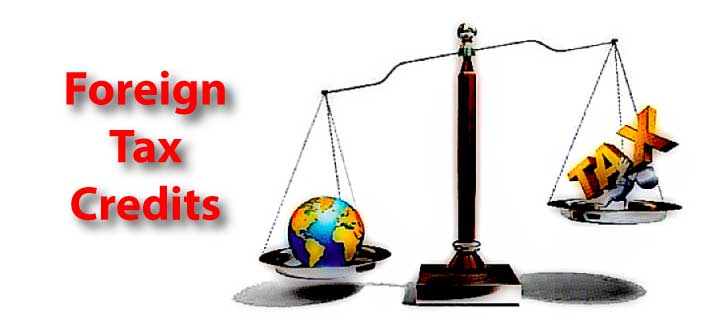Foreign Tax Credits
The foreign tax credit provisions (Internal Revenue code §§ 901-909) are among some of the most important for individual and corporate taxpayers in the international tax arena. These tax credits are used in the outbound transactions, where U.S. taxpayers are earning income abroad. If, for example, a U.S. taxpayer earns income in Mexico, that income is taxable in the United States and may be taxable in Mexico as well. As a way to alleviate this double tax on foreign income, the U.S. allows the taxpayer to offset taxes due in the United States with the income taxes paid in Mexico.
Are there any Limits to my Foreign Tax Credit?
§ 904 states that one’s foreign tax credit cannot exceed the U.S. tax imposed on your “foreign source income.” As a result, the higher one’s foreign source income, the higher the § 904 limitation will be. This limit is put into place because the U.S. only allows a credit against the U.S. taxes owed based on taxes already paid on the foreign sourced income. This is to avoid a situation where credits for foreign sourced income could offset taxes owed on US sourced income. This also becomes a problem when a foreign country taxes a U.S. taxpayer and the U.S. does not consider that income foreign sourced. As a result, the U.S. will not allow the foreign tax credit and the taxpayer will be taxed twice (by the foreign country and by the U.S.). However, if a credit is allowed and there is excess foreign limitation (foreign tax paid greater than U.S. tax liability), that excess limitation can be carried back or carried forward a certain amount of years under § 904.
Another double taxation situation occurs where the tax rate in the foreign jurisdiction is higher than in the U.S. Because the tax on that foreign sourced income will be less in the U.S., the taxpayer will not get credit for the full tax paid abroad. As a result, the portion of tax that is above the U.S. tax rate will be taxed twice.
Are all Foreign Taxes Creditable?
In order for a taxpayer to receive a U.S. foreign tax credit for an amount paid to a foreign government, there are several requirements that must be met. First of all, the foreign country must be one that the U.S. recognizes and maintains diplomatic relations with. A country that provides any support for acts of international terrorism is not eligible. Second, the foreign levy must be a tax, not a voluntary payment and not a payment for a specific right or service (e.g., royalty payment). Generally, a tax is a forced payment collected by a governmental authority in exchange for a variety of governmental services (e.g., roads, schools, national defense). This tax must also be considered an income tax when viewed through the lens of U.S. tax principles. If the tax is not an income tax, it may still be creditable as an “in-lieu-of” tax under I.R.C. § 903. If these prerequisites are met, then the taxpayer will determine the amount of credit available and deduct it from the U.S. tax liability.
The Important Role of a Tax Attorney In International Tax Situations
US tax law by itself is complex, however in situations where you must reconcile taxes paid on foreign sourced income with US tax law those complexities can increase significantly. Penalties for making mistakes in reporting foreign income or foreign bank accounts are among the most severe in US tax law. Therefore, it is strongly advised that you seek the counsel of an experienced international tax attorney to ensure that you are in full compliance with the law and protecting your rights and interests to mitigate your tax exposure.
The Tax Lawyer - William D Hartsock has been practicing international tax law since the mid 1980's. Mr. Hartsock offers free consultations with the full benefit and protections of attorney client privilege. Call for your free consultation today!



Comments (0)